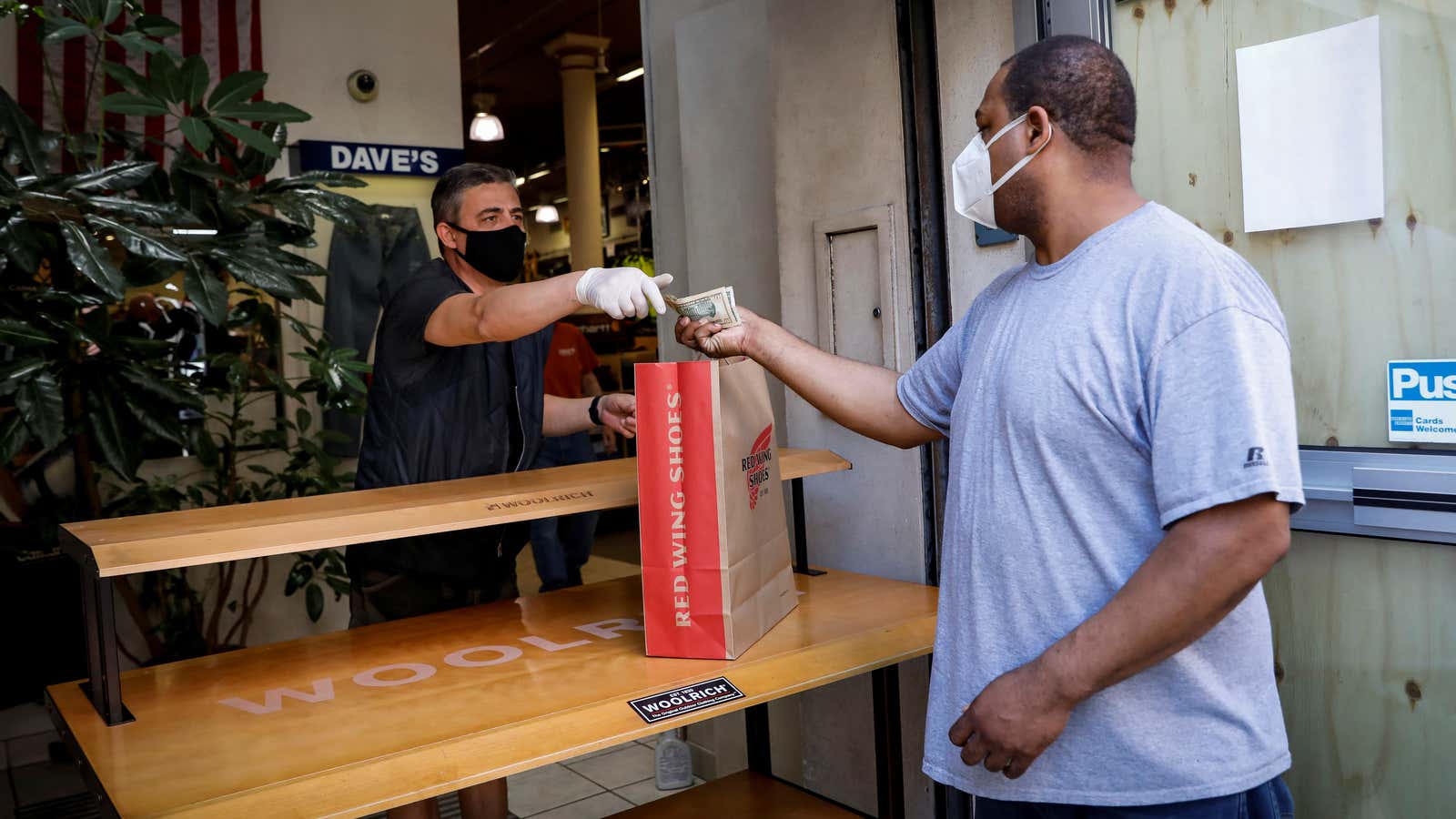If you have a job in the current economy, you’re already among the lucky ones, particularly if you’re able to work from home, safe from the worry of exposure to a possibly fatal virus.
That isn’t to say that you can’t whine a little, about the cabin fever, the colleagues you miss, your nostalgia for your old routines or that vegan mac and cheese spot by your office—it’s only human. According to a recent survey, about half of US workers toiling away in their living rooms may also share a sense of workplace limbo: Even as more states lift coronavirus stay-at-home orders, 45% of US companies have not yet said when employees will be invited back to their usual places of work.
The survey, by the Society of Human Resource Management (SHRM), was sent to a random sample of more than 1,000 members of the association, including companies across all sectors and all of sizes.
Here’s a look at how organizations responded to the pressing question of “when.”
Given how much scientists are still learning about Covid-19, it isn’t surprising that so many companies are still in the TBD category, even as far fewer cases are being reported in worst-hit cities, like New York.
But, arguably, it isn’t only the mysteries of the virus that are spooking companies. In the US, the question of liability, should an employee become ill, is also undetermined.
The federal government, meanwhile, is providing only recommendations, and not the enforceable regulations that many are calling for, to ensure workplace safety. In some places, state governments are stepping in with new rules. But for the most part, companies have been left to figure this out themselves. (As Quartz reporter Anne Quito reported, we can expect plenty of DIY solutions and hastily designed prototypes of office-interior features meant to keep colleagues at least six feet apart from one another.)
Predictably, the largest employers and knowledge sector companies surveyed by SHRM were found to be more likely to have not yet told employees when they should return. But among the tech giants, at least, there are some trends emerging: Twitter and Facebook, as just two examples, have said their employees are welcome to work from home forever.
We might expect more of the same from others. SHRM’s poll found that 68% of organizations “probably or definitely will adopt broader or more flexible work from home policies for all workers” and almost one-third (29%) will allow staff to work from home full-time through the rest of 2020.
